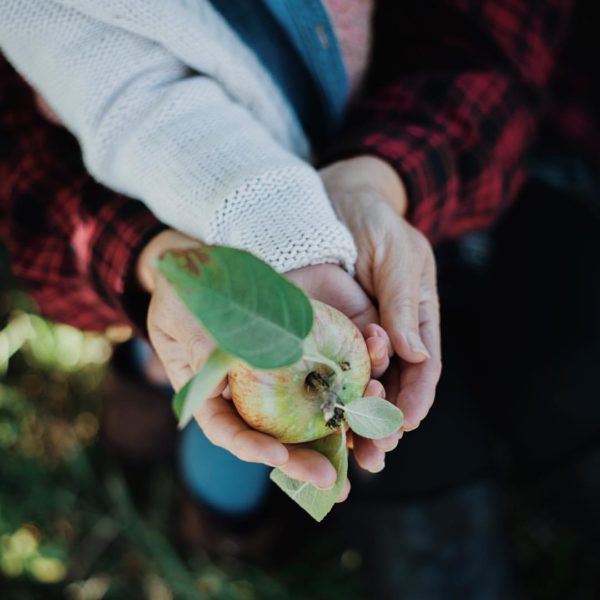A few nights ago, my family of four sat at the kitchen table for dinner. Overcome with bottled emotion and stress, I melted right then and there. I started to cry. I hid my face in my palms, wiped my own tears and hoped by some miracle no one would notice. But a sweet voice interrupted softly,
“Mom? What’s wrong?”
Unsure how to respond, the question went unanswered. A few second later, the sincerity persisted.
“Mom? Are you sad?”
And without prompting, my ketchup-covered 3.5-year-old boy hopped off his chair, wandered over my way, and wrapped his arms around my waist. Together, he and I sat embraced as the world froze around us.

There are moments in our life that eliminate every fear out of the guesswork of parenting. We harbor endless guilt – how much TV to watch, how to follow through with discipline, bedtimes, sharing, chores, arguments – we continually wonder how on Earth we’ll ever raise productive humans. It can feel as though none of us actually know what we’re doing.
But this. The moment my little man squeezed me with genuine, unprovoked empathy, I knew something is working.
After witnessing such sincere compassion out of such a little human, it made me wonder: why are we so afraid to share our emotions with our children? Parents today are expected to remain level-headed at all times. We maintain quiet indoor voices. Calmly discuss our kids’ way through temper tantrums. We’re super heroes, unafraid. And anger? No way. Anger is taboo when it comes to parenting. For whatever reason we expect that if we, as parents, stifle our own emotions, our little humans will by some miracle learn to manage their own in a healthy and productive manner. That logic simply doesn’t make sense.
We lead emotional lives, as do our children. Through trial and error, we’ve learned that what works best for us is to permit the feelings. The full, unadulterated, grown-up feelings: the ugly cry, the frustrated yell, the voice-quivering fear, the full belly laughs, just to name a few. As our little family grows, we’ve learned to feel by example.
Anger
Keeping cool is not my strong suit. I’m the mom that yells. I get impatient, frustrated. I snap at my toddler to stop crying. These are some of my least proud moments. And to be fair, I’ve tried reading the books about dealing with toddler tantrums. I’ve talked quietly, calmly. I’ve asked him to go into a new room until he’s ready to talk. I’ve shouted and mimicked his tantrum (apparently this helps him feel heard?). I’ve talked caveman to him. I’ve bear hugged. I’ve walked away. All the things, I’ve tried all the things and somehow these toddler tantrums manage to get the best of me.
Now that my little man is approaching 4 years, I am beginning to hear from his little mouth the same words I use when he is angry. “Mom, that’s rude.” “You don’t talk to me like that!” “I’m sad you’re yelling.”
Wow.
How odd it is to hear yourself from the voice of your child; and I realize he’s right. That is rude. I shouldn’t talk to him like that. Gosh, I don’t intend to make him sad, I just want him to listen. These little phrases send big messages that we need to talk through this together.
So, we apologize. I apologize to my three-year-old for yelling and we hug. Have you ever apologized to a toddler? There is not much on Earth more humbling. But I promise you, it works.
This also presents itself as an opportunity to discuss the reason for the anger. Are you disappointed? Frustrated? Hungry (hey, I’ve been guilty of being hangry, too)? Sad? Tired? Scared? Overwhelmed? The more we can dig together to identify the cause of our anger, the more apt he will become to learning how to deal with those emotions as an adult.
Until then, you’ll find us with the rest of society trying to navigate toddler tantrums day by day.
Fear
Our role as parents are to be super heroes. We can conquer anything, unafraid. We kiss owies, squish spiders, peak under beds for monsters, watch out windows during thunderstorms, and tell that mean kid at the playground to back off. Which is ironic for me; my under 5 foot frame and nervousness with thunderstorms makes me a less-than-ideal heroine. Even so, our kids view us as super human.
There was one day I went shopping with my oldest. In his toddler excitement for the grocery store, he leapt out of the car and bolted towards the automatic sliding doors. We were parked across the entire parking lot. In my panic, I bolted after him, grabbed his arm and yanked his little body to the side near the cars. He was stunned and began crying. My rage-filled lecture fell on deaf ears as I filled his head with reasons why parking lots are so unsafe. Honestly, he had no idea what I was saying, and I realized I needed to simplify my message.
You scared Mama.
Immediately his eyes widened and tears ceased. It was as if the heavens opened and angels sang while I watched this sweet human look at me with wonder. Mama gets scared sometimes, too. Discussing our fears with our children can open doors for connection and learning, an opportunity that should not be overlooked as valuable.
Gratefulness
Positive emotions are equally important to discuss with our littles. In an attempt to avoid raising self-entitled, unaccountable adults, our family talks about gratefulness around the dinner table.
“What are you thankful for today?”
We lead by example. My husband and I will start, then ask the other, and then we both turn towards our little guy. The answers from a three-year-old can be pretty great. Some days it’s as simple as “that tree,” or “worms.” Some days it melts me to the core, like when he says “today I’m thankful for my family.”
This practice always brings us back to our roots. Even on the worst of days, we always have something to be grateful.

Parenthood is riddled with guilt between right and wrong. It seems every one has an opinion, and a loud one at that. But when it boils down to the basics, we’re all in it for the same goal. To raise productive little humans who will grown to be happy, fulfilled, productive big humans. Emotional health is one of them. Let’s get talking while we have their attention.
Our home is still full of tantrums, the biggest joy and lowest lows as in all young families. But here we are, trying to navigate these big emotions in a way we hope to be beneficial for all of us: feeling by example.










